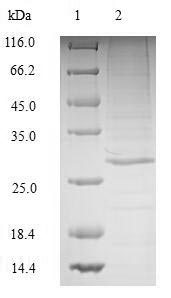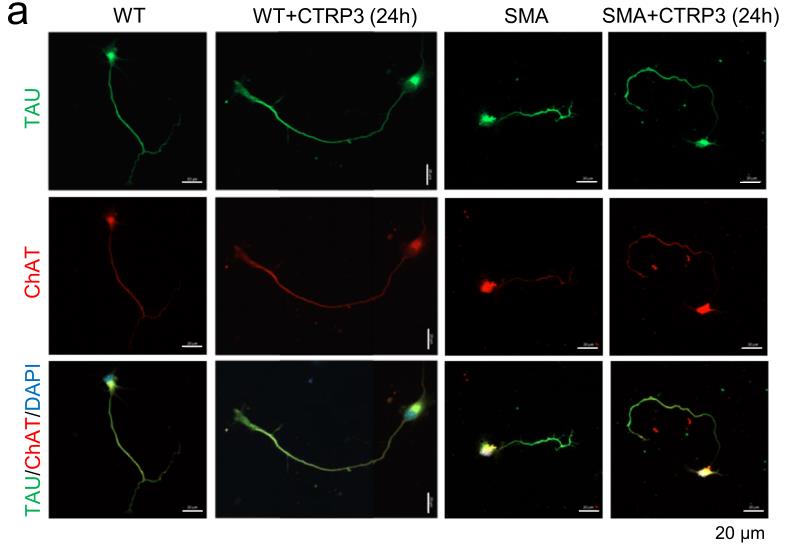Dive into the complex world of metabolism research with our high-quality Recombinant Human C1QTNF3 protein. Complement C1q tumor necrosis factor-related protein 3 (C1QTNF3), also known as CTRP3, plays a significant role in various biological processes, including adipocyte differentiation, lipid metabolism, and the regulation of inflammation.
This product features the full length of the mature C1QTNF3 protein (23-246aa), ensuring an accurate and reliable representation for your research endeavors. Expressed in E.coli, the protein is designed with an N-terminal 6xHis-tag, which enables efficient purification and detection methods. With a purity greater than 90% as determined by SDS-PAGE, our Recombinant Human C1QTNF3 protein is available in both liquid and lyophilized powder forms, providing flexibility and consistency for metabolic researchers and a wide range of applications.







